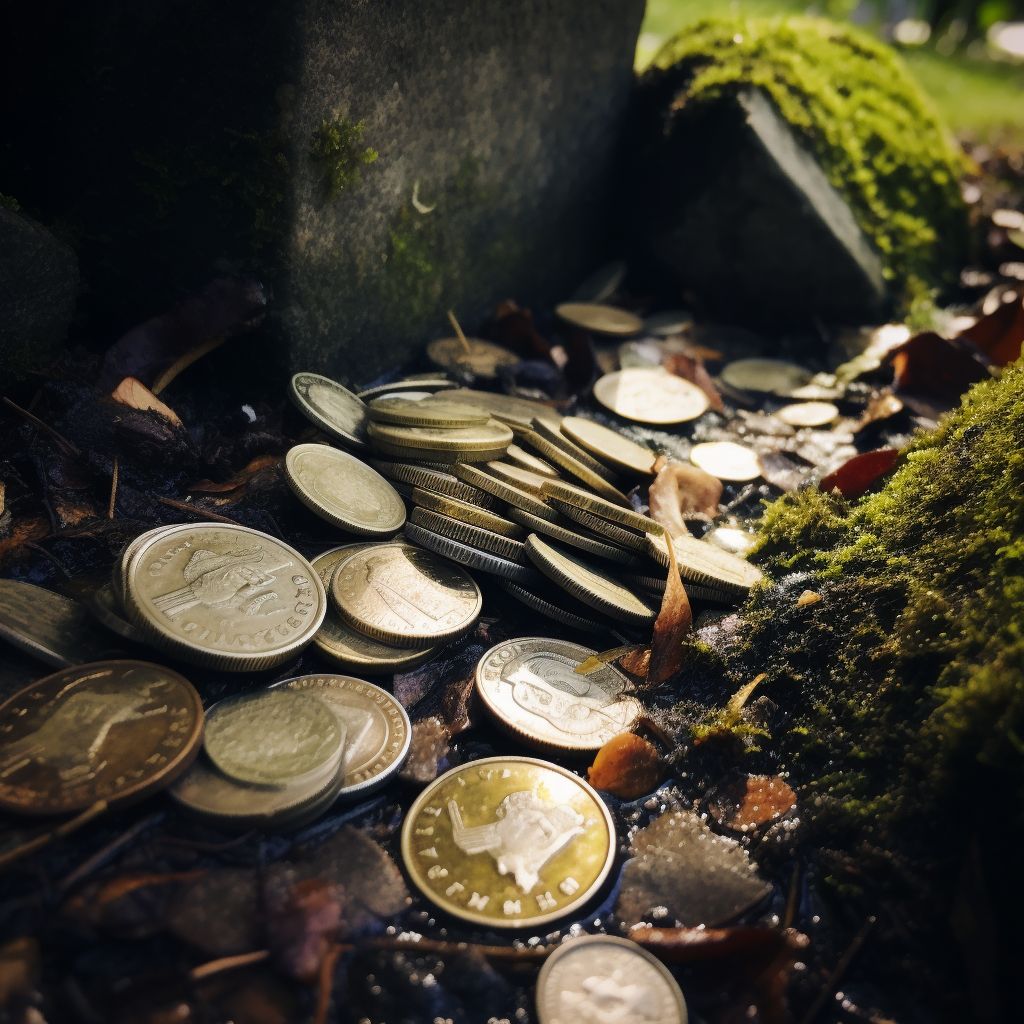
Visiting the resting places of the departed is a practice steeped in tradition and symbolism, with each culture adding its own layers of meaning and respect. It is common for visitors to leave tokens at the site, often as a gesture of remembrance or in the hope of offering peace to the deceased’s spirit.
Among these practices, the act of leaving coins at a gravestone has become a poignant symbol with varied interpretations and origins. What might be the reasons and meanings behind this act, and how have they changed throughout history? This article delves into the tradition of coins at gravesites and what this act may signify.
Cultural and Historical Significance of Coins on Gravestones
The tradition of leaving coins on gravestones is rich with history, and the meanings behind this small gesture are as varied as the cultures that practice it. Here are some commonly attributed reasons:
1. Ancient Origins:
In ancient Greek mythology, the deceased were buried with a coin to pay Charon, the ferryman of Hades, for passage across the River Styx. This practice ensured the deceased’s safe journey to the afterlife.
2. An Offering or Tribute:
Coins are sometimes seen as a form of offering to the spirits of the departed—a token of tribute or respect, symbolizing that the deceased is not forgotten by the living.
3. A Show of Status or Connection:
In certain traditions, the denomination of the coin left at the grave indicates the visitor’s relationship to the deceased: a penny for a friend, a nickel for someone who went to the same school, a dime for a relative, for example, and a quarter for someone who was present at the deceased’s passing.
Please Head On keep on Reading (>)

